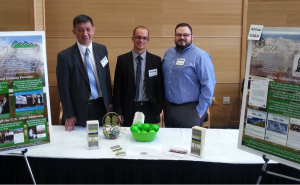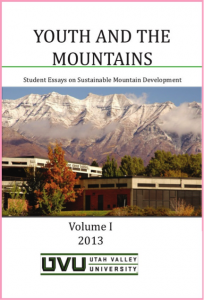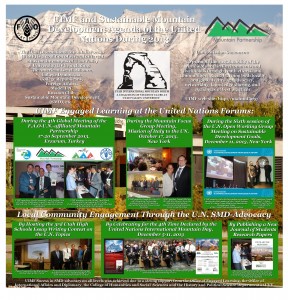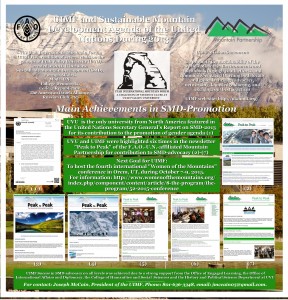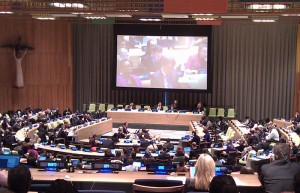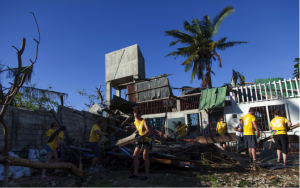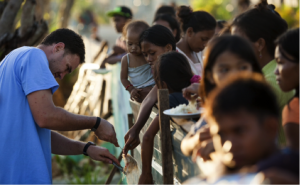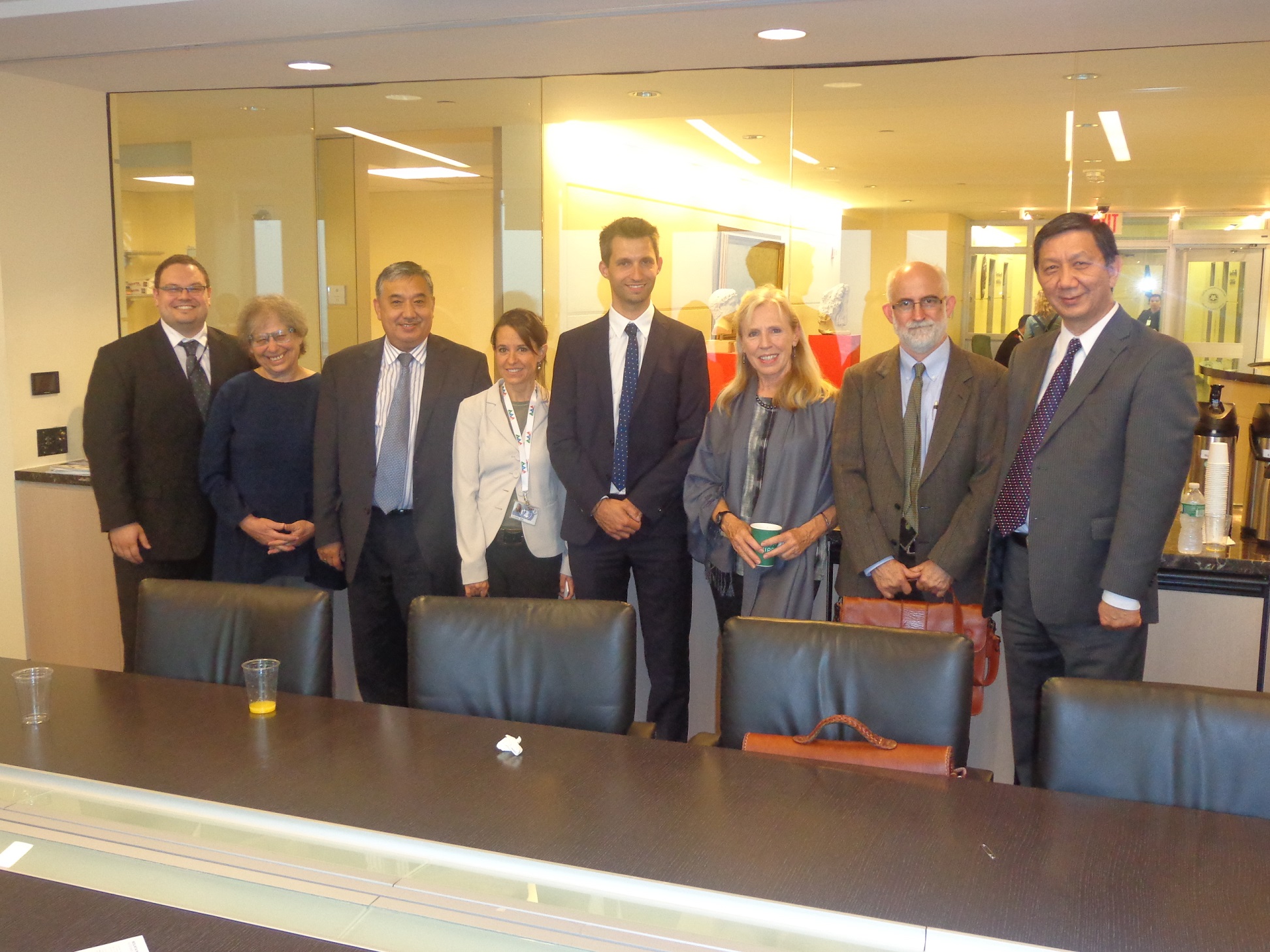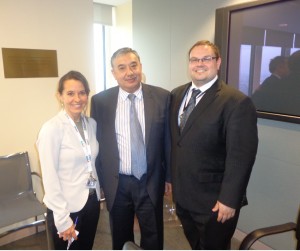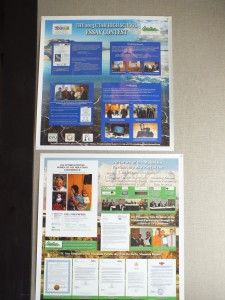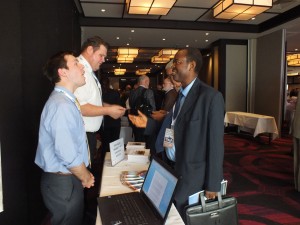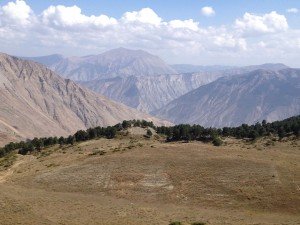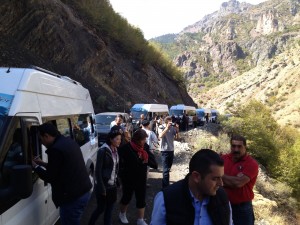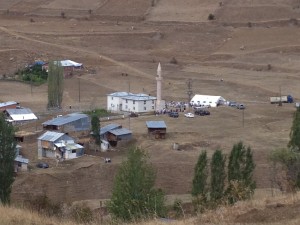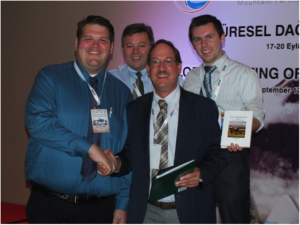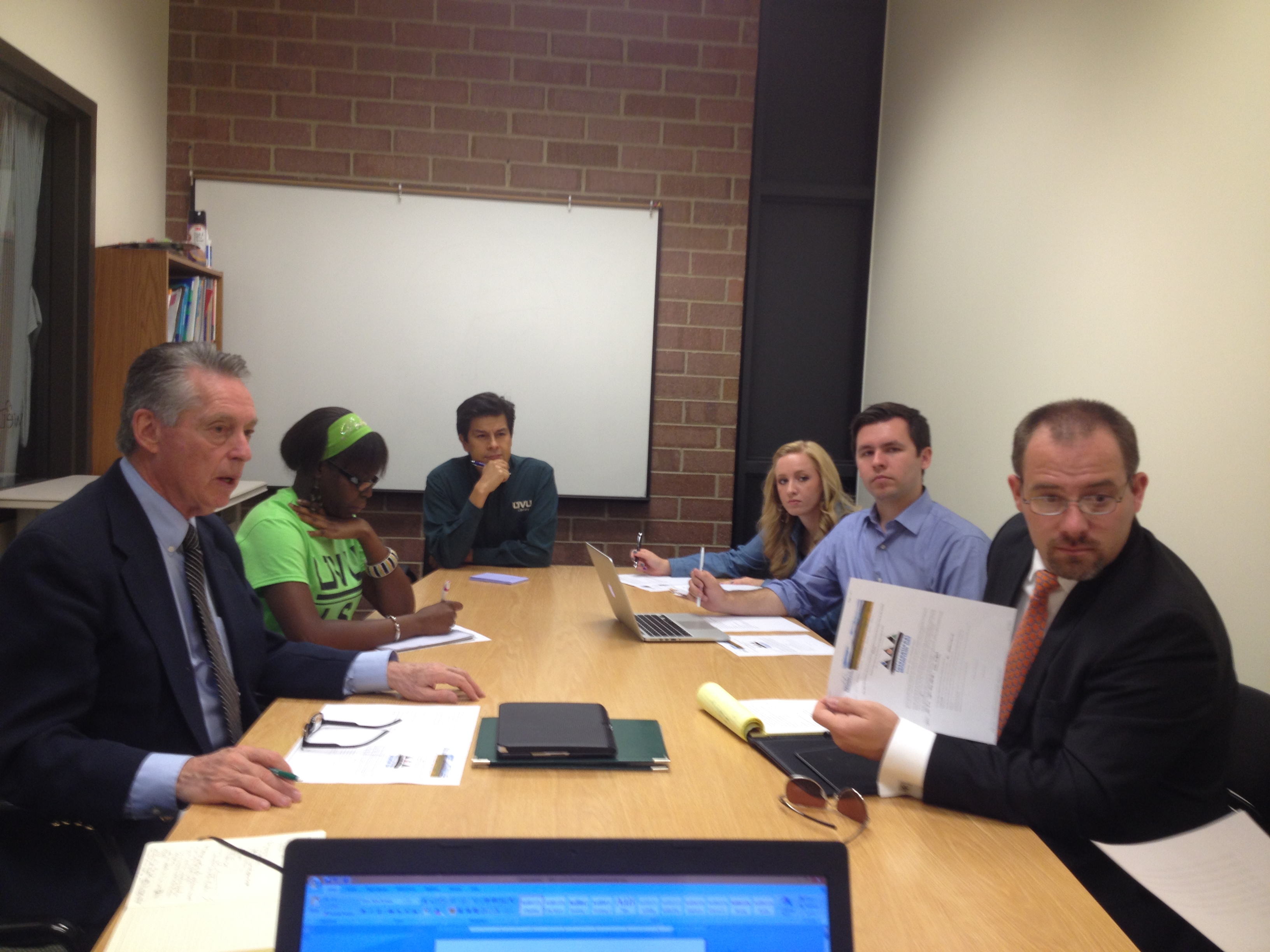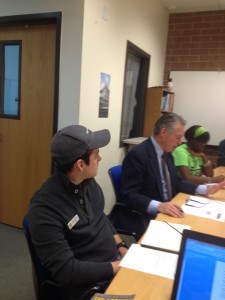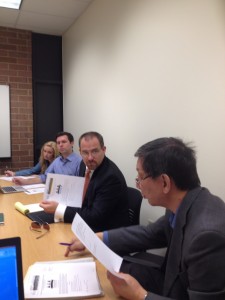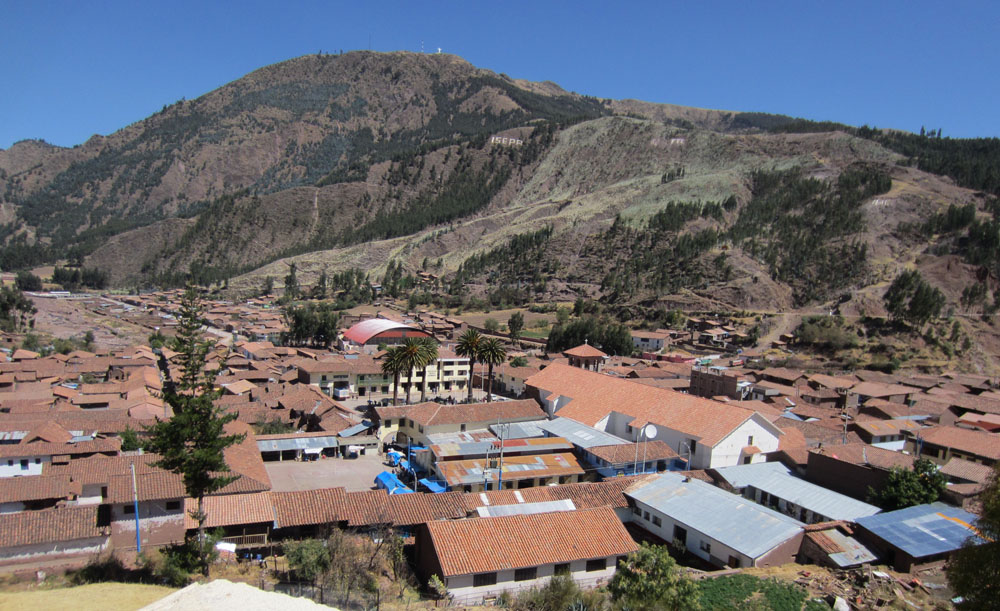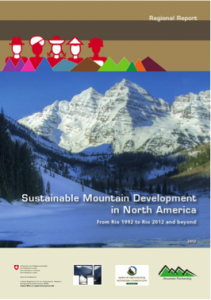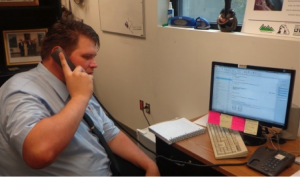Presenting UIMF Achievements During 2013 at the UVU’s Engagement Week
Utah Valley University’s Engagement Week which took place during March 24-26, 2014 gathered a variety projects pursued by UVU faculty and students with a focus on engaged learning activities, locally and globally based. It was an opportunity to showcase the projects that Utah International Mountain Forum’s (UIMF) and its associated clubs have been involved in over the past year. UIMF presented through two formats at this conference.
First, Dr. Baktybek Abdrisaev, faculty from the History and Political Science Department and one of the advisors of the UIMF, myself and Joseph McCain, President of UIMF, presented two specially designed posters about major activities and achievements of UIMF throughout 2013 on the morning of March 24, 2014 to all interested individuals and groups.
(Left to right) Dr. Baktybek Abdrisaev, advisor of the UIMF, myself and Joseph McCain, President of UIMF presenting poster during the Engagement Week event at UVU
These activities included the UIMF delegation contribution to the agenda of the the fourth Global Meeting of the Mountain Partnership in Erzurum, Turkey in September 2013, participation at the meeting of the Mountain Focus Group at the United Nations in New York in October 2013, hosting the International Mountain Day declared by the United Nations during December 5-11, 2013 in Orem, Utah, and the third Utah high school essay contest on the topics of clean water on March 28, 2013 in Orem, Utah, among many others. In addition to posters, UIMF brochures were distributed and the newly published first volume of the journal with students research papers titles “Youth and the mountains”. This was a successful avenue for promoting the club on campus through the raising of awareness of the UIMF’s activities among the faculty and students of UVU. It also served as an effective recruitment tool as one of the current aims of the UIMF is to bring a more diverse range of students and clubs into its coalition in order to more effectively achieve goals of the mountain cause promotion as a campus through united efforts.
journal of student research papers distributed during the Engagement week presentations
UIMF team was also invited to make an oral presentation during the same day on March 24, 2014. It included a panel of individuals involved in the UIMF’s projects: two UIMF advisors, Dr. Baktybek Abdrisaev and Professor Keith Snedegar, Joseph McCain, President of UIMF, and myself. The presentation focused on the engagement of the students in the promotion of the United Nations sustainable mountain development (SMD) agenda as a result of UIMF’s activities. Each member of the panel had a chance to speak about their own involvement in the club’s activities. Cash prizes were awarded to audience members for correct answers posed by the panel members. In addition the audience was given time to ask questions
Professor Snedegar spoke on his involvement in judging the essays for the third Utah high school essay contest held in March, 2013 on the topic of the U.N.-declared International Year of Fresh Water and the preparations for the upcoming presentation of essays by the students for the fourth Utah high school essay contest on the topic of the International Year of Family Farming on March 28, 2014. Professor Snedegar emphasized that the yearly essay contests, co-hosted by two Mountain Partnership members, UVU and the City of Orem in cooperation with the Orem Public Library, have become a great tool to raise an awareness among Utah youth in Sustainable Mountain Development(SMD)-activities and to identify among them new leaders in SMD-advocacy both in the Rocky Mountain region and beyond. Dr. Abdrisaev spoke on the significance of the UIMF as internationally recognized university based student run organizations focused on issues affecting mountainous regions, having done much of its work in conjunction with the United Nations SMD-agenda. The student portion of the panel including Joseph McCain and myself were able to give unique perspectives on the impact that the UIMF has had on students education and ability to be engaged in the promotion of the SMD-activities both locally, during the events such as the International Mountain Day celebrations and globally, as was done, for example, during the internship at the United Nations by Joseph McCain, or during participation at the meetings of the Mountain Partnerships, which allowed them to contribute to the U.N. agendas in practical ways.
Members of the panel also spoke about future plans of UIMF and focused on hosting the fourth International Women of the Mountains Conference at UVU during October 7-9, 2015. They invited the audience to contribute to the agenda of the conference and distributed a call for papers among present faculty and students.
UIMF is constantly looking for ways to more effectively work within the campus on issues that the students find significant, ranging from protocol, professional growth, to building connections with powerful people and institutions around the world. These continuing efforts have involved a wide range of students and faculty as illustrated by the joint contribution from members of UIMF and UVU’s ROTC for the ongoing current activities of the UIMF, including the hosting of Dr. Kangas, Academic Dean from the National Defense University, Washington, D.C., during February 25-28, 2014 and the involvement of professors from departments ranging from history to mathematics in numerous projects, etc. The presentations made at engagement week were geared towards further pursuing these objectives.
Christopher Wiltsie, President of the Sustainable Mountain Development
“Detailed Schedule of the Engagement Week”:
